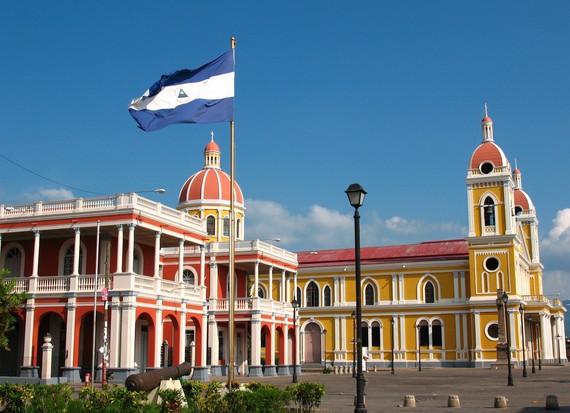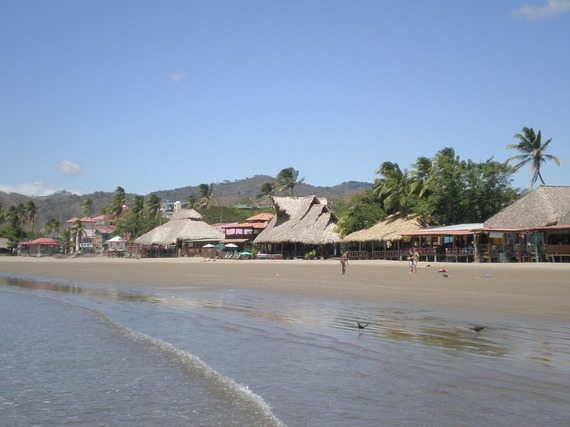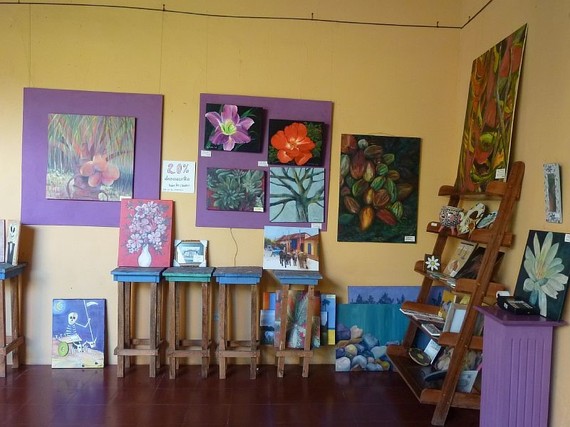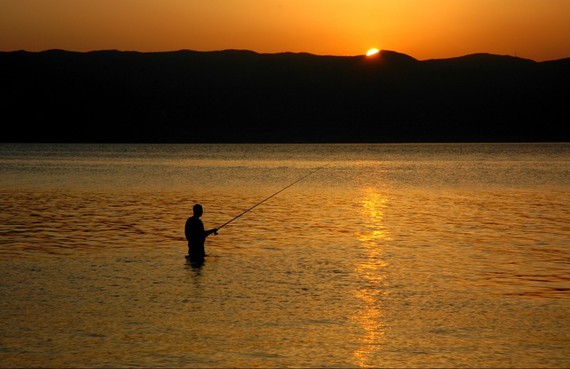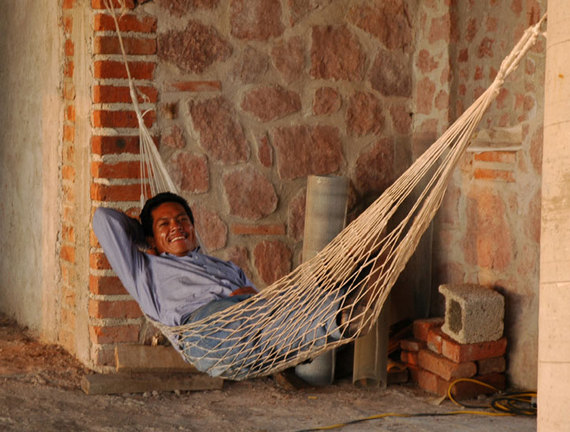Darrell Bushnell and his wife Amy have been traveling to Nicaragua for 15 years. Today they're permanent residents of the country and considering naturalization.
"We're just a couple of normal people. I used to be an operational manager for a large finance firm. My wife Amy was a rep in real estate. Like many people our age, we've traveled overseas quite a bit. However, unlike many people any age, in 2006, we moved from Charlotte, North Carolina, to Managua, Nicaragua..."
What is this "totally normal couple" (as they describe themselves) doing in Nicaragua?
"Like everybody considering the idea of retiring overseas," Darrell explains, "we checked in on all the usual suspects. We looked at Ecuador, Costa Rica, and Panama, but we kept coming back to Nicaragua. Over a five-year period, we stayed in Nicaragua several weeks at a time, and we liked it.
"I don't know what else to tell you. We just liked it here. Beautiful country, diverse, low cost of living, which is a big factor. Plus we felt there were opportunities here for us. We knew we weren't interested in a sunset-and-drinks-on-the-patio retirement. We knew we wanted to stay busy."
At first, Darrell and Amy based themselves in San Juan del Sur on the ocean, but they hated it. They sold their house there after four months. At that time, San Juan Del Sur didn't have much of an expat population beyond young surfers. Darrell and Amy felt they weren't able to connect with people who shared their interests. San Juan del Sur has changed a great deal since, but at that time it didn't work for a couple of retirees.
From San Juan del Sur, Darrell and Amy moved to Granada, where they bought a 160-year-old colonial house with a large patio.
"We knew right away that this was the place for us," Darrell remembers. "Everything in Granada is within a short walk of everything else. Most people here live within four to six blocks of the city center, so many don't have vehicles. We're close to Managua and the international airport, which is 35 to 45 minutes away. And the Pacific beaches are only an hour-and-a-half drive away."
Living in Granada is convenient. Vendors come door-to-door selling fruits, vegetables, soap, animals, about anything you could imagine.
"We enjoy the unexpectedness of it all," Darrell says.
"Originally," Amy joins in, "we thought we'd open a B&B, but Darrell joked with me that I'm not a B&B type. Before we moved here, I didn't usually wake up earlier than 10 a.m. So we didn't do the B&B. Now that we're living here, though, I wake up around 4:30 or 5, and that surprises even me.
"Instead of the B&B I started an art studio and gallery. People come from all over the world to visit the gallery."
"We are extremely busy," Darrell continues. "Busier than we were back in the States. Amy has her studio and gallery, teaches five days a week, and is on a number of community committees. I am on a library foundation, I work with the embassy, and I'm involved with a couple of other projects, including a website for expats looking to move here.
"You tend to reinvent yourself when you make a move like this," Darrell explains. "I never wrote before in my life, but now I write a lot. Amy has always been in art, but she never taught before. Whatever you're interested in, there's something here for you to do. We've got the American Legion, the Rotary, Lions Club, book clubs, monthly expat dinners, volunteer organizations, church groups, health clubs, and on and on."
Now the couple is starting a farm on some land they've bought.
"We're raising mostly baby animals," Amy says. "When they're done being cute, we eat them... which is a pretty good cycle."
"The fishing is great," Darrell continues, "both saltwater and freshwater. We come to Managua for movies. We play golf. There are some concerts and plays. It's a pretty good life."
One of the biggest appeals of life in Nicaragua for Darrell and Amy is the cost of living. The couple lives very well on about $2,000 a month. They have two vehicles and a maid. They eat out often. They travel.
"Everyone asks about medical care," Amy says. "We think it's pretty good. We love our doctor. A visit with him is $18. He gave us his home number and told us to call him directly if we need him at any time. Most doctors here do the same."
"However, if you're feeling bad you don't need to go to see a doctor. Just go to the pharmacy and tell them what you need and they'll sell it to you. And you don't need an appointment at a laboratory. Just take your bodily fluids there and tell them 'check this out.' Two hours later, they've got the results.
"Prescription drugs are much cheaper than in the States," Amy adds, "and, as I said, often you don't need a prescription."
"Of course, life here isn't perfect," Darrell interjects. "This is a different country and a different culture. That's why it's interesting. For us, that's why it's appealing. If you are open to new experiences and willing to learn some of the language, everything will work out just fine. However, every day won't be rosy."
"One thing I've learned is not to push the authorities. A clerk here has complete control. So when the tax assessor comes to your neighborhood, give him dinner, house his family, and your tax will go down every year. We have a friend down the street who kept demanding her 'rights as an American citizen.' Her tax bill is up 800 percent."
"Say I'm late for work and carrying heavy things," Darrell continues, "so I decide to take a cab. I'm the second one in the taxi, and the first person is going somewhere else. I am running late, but I get to see a good part of the city before arriving at my destination. You just have to go with the flow. I've learned humility."
"You have to remember that you are the outsider. We've seen some cocky Americans, for example, going up to Nicaraguans saying, 'You should do it like this, not like that' or 'Why do you only have one fishing boat... you should have a fleet.' That kind of thinking will get you nowhere. The only thing it will do is make you unhappy."
"Nicaraguans know how to relax. On the happy meter they rate much higher than we do."
"We could have left at any time," Amy says. "We could be living any number of other places, but we're really happy here. Nicaragua is different enough to be interesting but not different enough to be bizarre.
"We have a lot of friends here and are involved in a lot of projects to help our neighbors and the country. We have been welcomed with open arms. We have never felt, in all the time that we've been here, that we weren't welcomed. Quite the contrary. We feel loved here."
"Yes, we love it here," Darrell interjected, "but it is not for everyone. Only the adventuresome need apply."
"For us, though, the only regret is that we didn't move down here sooner."
Related Articles:
Earlier on Huff/Post50:

